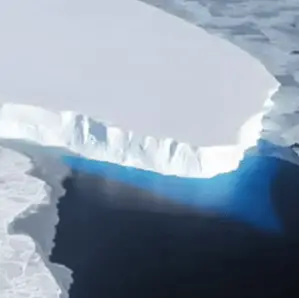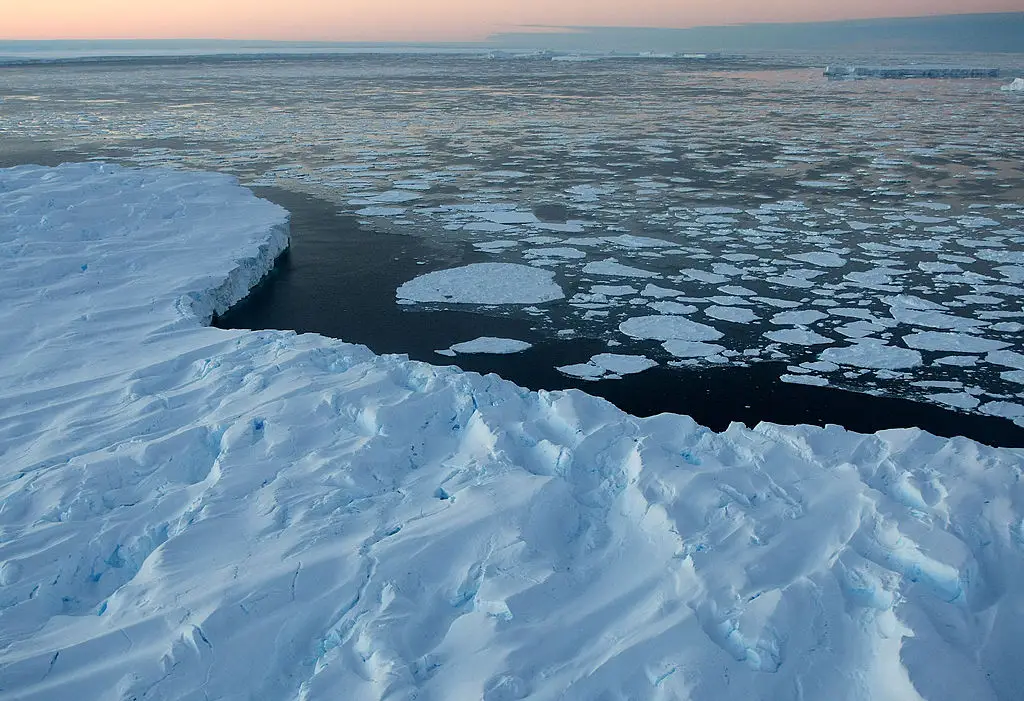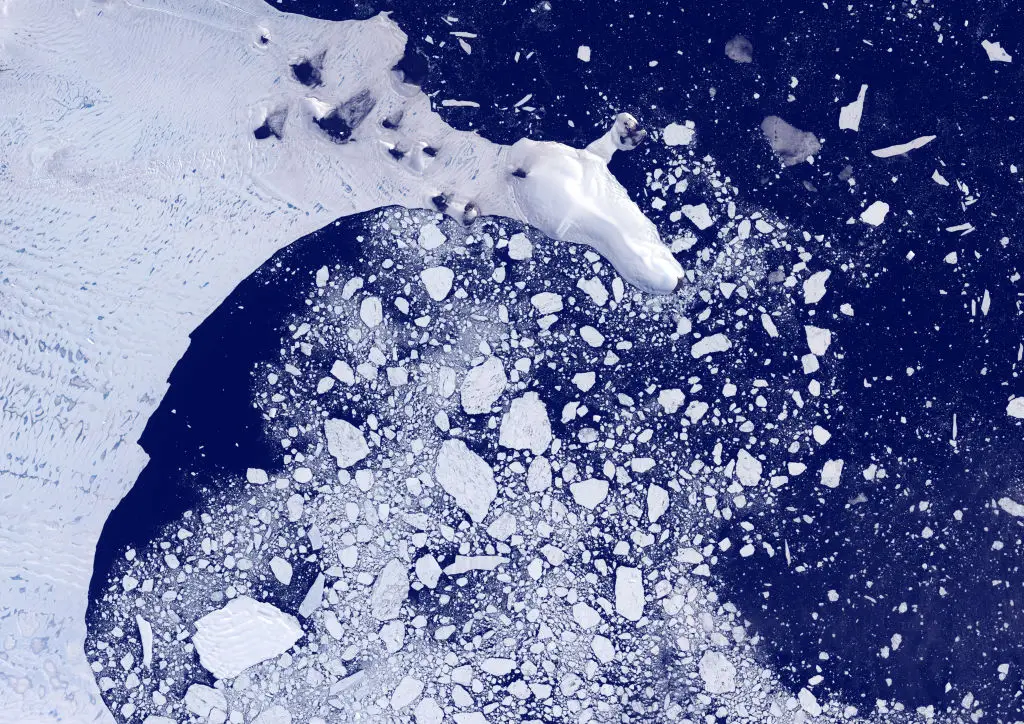
In the modern era of climate crisis, anytime you hear there's been an update about the 'Doomsday glacier', you know it's probably not going to be good news.
If that was indeed your instinct, you're bang on the money - a new study has revealed some alarming details about how the Thwaites Glacier is faring.
This huge slab of floating ice in West Antarctica has been shrinking for years now, retreating away and releasing floods of meltwater into the ocean around it.
The degree to which this water could contribute to global sea level rises has seen the Thwaites Glacier earn its nickname as the 'Doomsday glacier'.
Advert

Now, a new study published in Proceedings of the National Academy of Sciences has shown that the glacier might keep melting even more than expected.
The study's authors, glaciologists at the University of California, Irvine, have determined that warm water under the glacier's surface is causing a more and more rapid rate of melting.
Staggeringly, they think that this might mean we need to re-think our estimates for global sea level rises and that an extra two feet of sea level around the world could result if the entire glacier melts.
The results of this would be fairly catastrophic, ranging from flooding and habitat loss to an increase in violent storms and more, with coastal communities in particular bearing the brunt of the changes.
Co-author Christine Dow said about the results: "Thwaites is the most unstable place in the Antarctic and contains the equivalent of 60 centimetres of sea level rise. The worry is that we are underestimating the speed that the glacier is changing, which would be devastating for coastal communities around the world."

Much of the study was made possible by using ICEYE, a commercial satellite mission launched by Finland, as explained by lead author Eric Rignot: "When we have a continuous time series and compare that with the tidal cycle, we see the seawater coming in at high tide and receding and sometimes going farther up underneath the glacier and getting trapped.
"Thanks to ICEYE, we’re beginning to witness this tidal dynamic for the first time. There are places where the water is almost at the pressure of the overlying ice, so just a little more pressure is needed to push up the ice."
So, if there's a silver lining to any of this, it's probably the sense that we're getting better and better at observing and mapping these environmental changes, thanks to techy new tools like ICEYE.